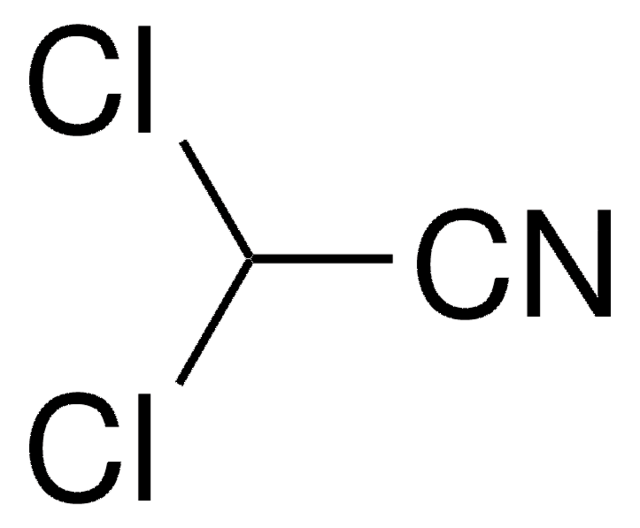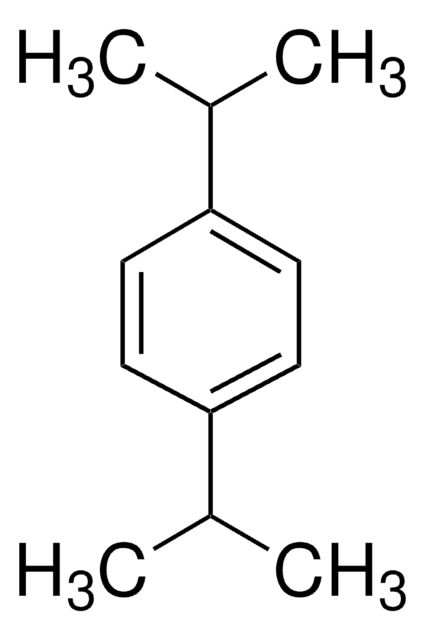676713
1,2-Dibromo-3-chloropropane
97%
Synonym(s):
DBCP
About This Item
Recommended Products
Quality Level
Assay
97%
refractive index
n/D 1.5542
bp
60-65 °C/7.5 mmHg
density
2.081 g/mL at 25 °C
functional group
bromo
chloro
SMILES string
ClCC(Br)CBr
InChI
1S/C3H5Br2Cl/c4-1-3(5)2-6/h3H,1-2H2
InChI key
WBEJYOJJBDISQU-UHFFFAOYSA-N
Looking for similar products? Visit Product Comparison Guide
Application
- Tritium radiolabeled dibromochloropropane.
- L-Glutathione conjugates, which are used to alkylate the DNA to yield N7-guanyl adducts.
Signal Word
Danger
Hazard Statements
Precautionary Statements
Hazard Classifications
Acute Tox. 3 Oral - Aquatic Chronic 3 - Carc. 1B - Muta. 1B - Repr. 1A - STOT RE 2 Oral
Target Organs
Testes
Storage Class Code
6.1C - Combustible acute toxic Cat.3 / toxic compounds or compounds which causing chronic effects
WGK
WGK 3
Flash Point(F)
170.1 °F
Flash Point(C)
76.7 °C
Personal Protective Equipment
Choose from one of the most recent versions:
Certificates of Analysis (COA)
Don't see the Right Version?
If you require a particular version, you can look up a specific certificate by the Lot or Batch number.
Already Own This Product?
Find documentation for the products that you have recently purchased in the Document Library.
Our team of scientists has experience in all areas of research including Life Science, Material Science, Chemical Synthesis, Chromatography, Analytical and many others.
Contact Technical Service![1,3,5-Tris[(3-methylphenyl)phenylamino]benzene 97%](/deepweb/assets/sigmaaldrich/product/structures/169/328/32782c27-7421-44c4-9401-58cf69e87f6c/640/32782c27-7421-44c4-9401-58cf69e87f6c.png)









